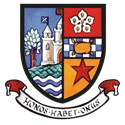RMPS Broad General Education
Religious and moral education plays a crucial role in the learning of young people at Bathgate Academy. RME enables pupils to develop an enquiring attitude toward religion and philosophy through the study of a diverse range of religious and non-religious viewpoints. In the BGE Phase, pupils explore the world's major religions and consider the impact religion has and has had on the development of modern society. Pupils are taught to apply a philosophical approach to the study of religion and are encouraged to engage critically with religious beliefs, practices and values. This process of critical engagement with religion is supported through the teaching of thinking dispositions like open-mindedness, sensitivity to context and intellectual curiosity. Pupils are challenged to learn about and learn from religion and supported to develop their own capacity for moral reasoning and judgement through the investigation of moral problems and dilemmas. Personal search is an important element in RME and pupils are encouraged to reflect on their experience of the world by engaging with 'ultimate questions' concerning the meaning, value and purpose of life.
S1 and S2 RMPS
Our S1 and S2 programmes are informed by a whole school curriculum model that has been developed to support interdisciplinary learning and the promotion of higher order thinking skills and problem solving. This model advocates an approach to teaching and learning based on engagement with a series of organising principles and themes. In S1, pupils explore the theme of origins and address the 'big question': where do we come from? As part of their learning in S1, pupils investigate the problem of human identity and consider the factors that shape our individual and collective identities. Within this context, pupils explore the origins and purposes of religion and learn about the contribution religion has made to our development as human beings. The function of myths, symbols and rituals in religious life is examined to develop pupils' understanding of religion as a force that has shaped civilization throughout history. In S2, pupils investigate the theme of exploration and address the 'big question': what is our place in the world? As part of their learning in S2, pupils study religious and philosophical responses to this big question through engagement with the religions of Christianity and Hinduism. Pupils also study philosophy and are introduced to the philosophers Socrates, Plato and Aristotle through a series of philosophical problems and thought experiments.
S3 RMPS
Our S3 programme focuses on the themes of diversity and difference, in particular differences in the areas of belief, ways of life and culture. We examine the ways such differences often give rise to conflict and generate disagreement and debate. By studying a range of contemporary religious, moral and philosophical issues we consider the causes of conflict and explore individual and collective responses to it. Pupils investigate ethical problems using a philosophical method of enquiry and reflect on their own responses to issues such as war, genocide, inequality and discrimination. Our S3 programme in RME is linked thematically with other courses offered in Humanities at this level, particularly Revolution, Conflict and Peace, and where appropriate explicit links are made by teachers in classes to deepen and extend pupils' knowledge and understanding across subject areas.
Our focus religions in S3 are Judaism and Buddhism. Pupils investigate Jewish and Buddhist attempts to explain the meaning of life and reflect on the questions 'what makes us happy?' and 'what is a good life?' by drawing on insights from Jewish and Buddhist beliefs and modern psychology. In addition to developing knowledge and understanding of contemporary religious and moral issues, S3 RME is a rich source of skills development including: critical thinking skills (the ability to develop and sustain a line of reasoning, analyse and evaluate arguments, formulate conclusions based on evidence); the capacity to reflect on one's own views, and the views of others, and to consider different perspectives on a range of important global issues; the ability to apply insights drawn from the study of religion and philosophy to investigate problems of contemporary and enduring relevance; and the ability to engage in meaningful discussion and debate and the confidence to express one's own views.




